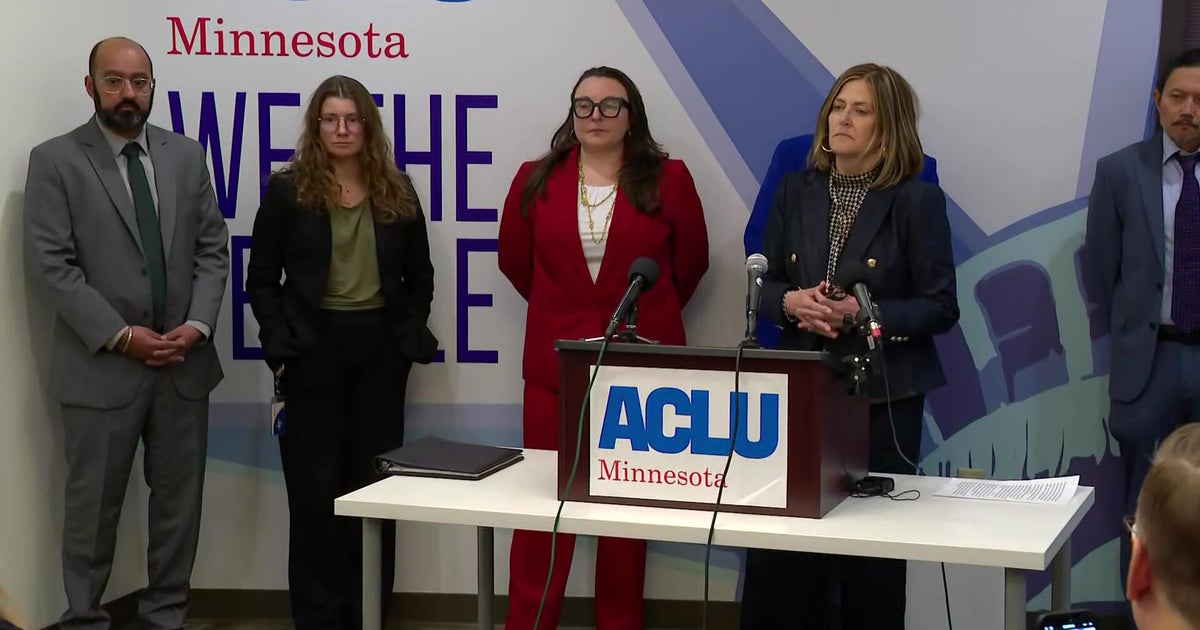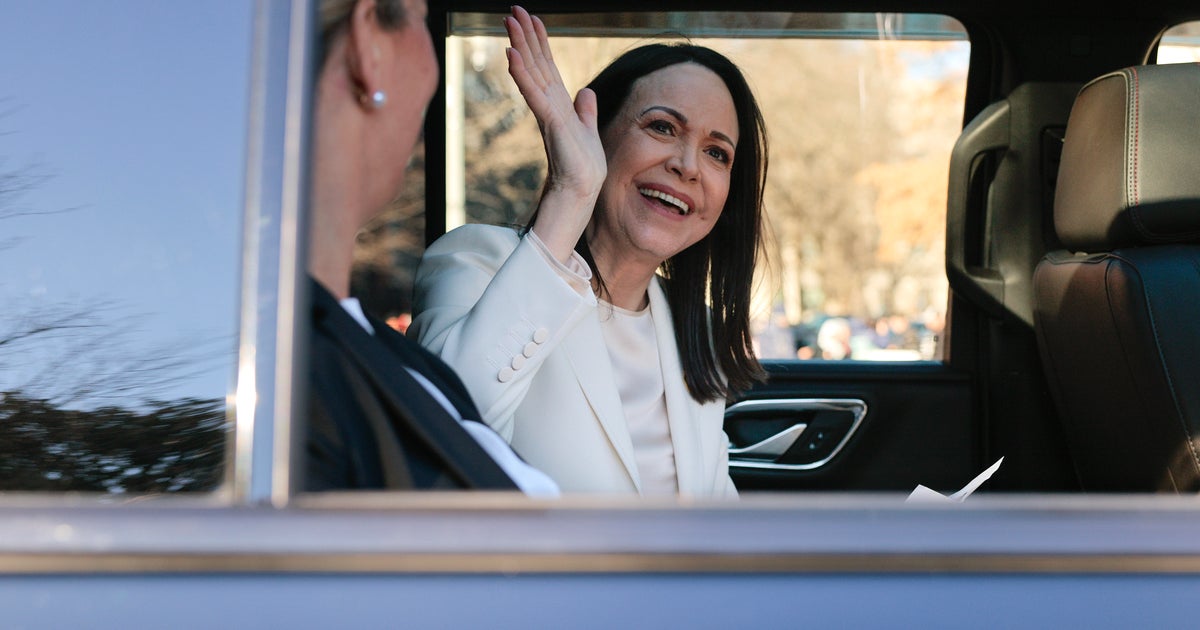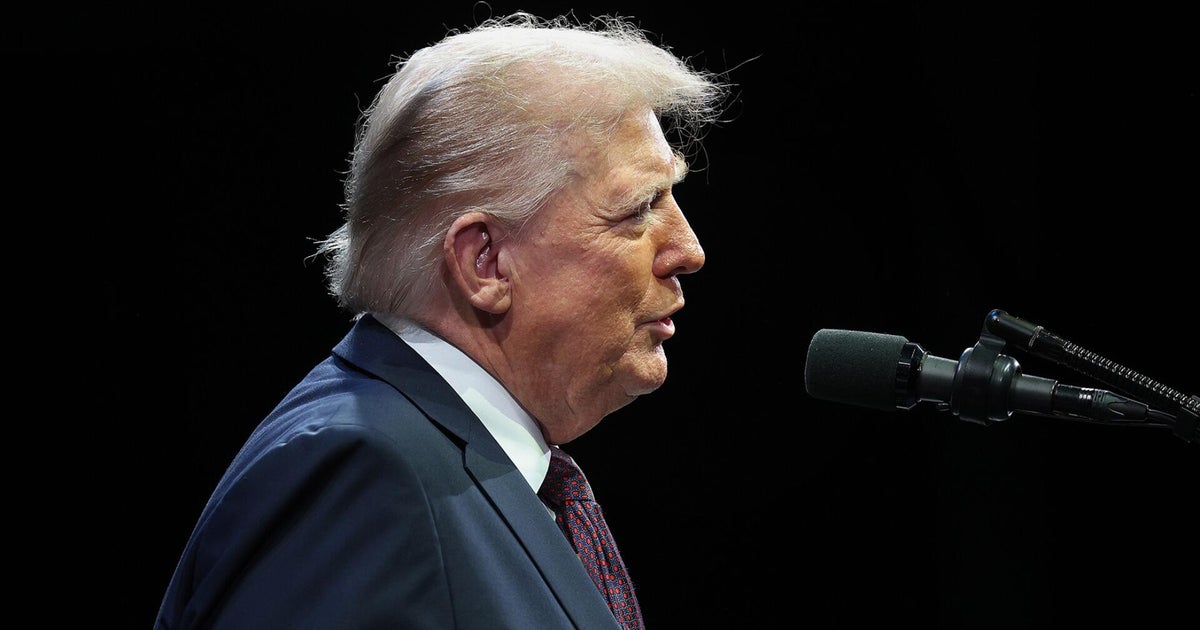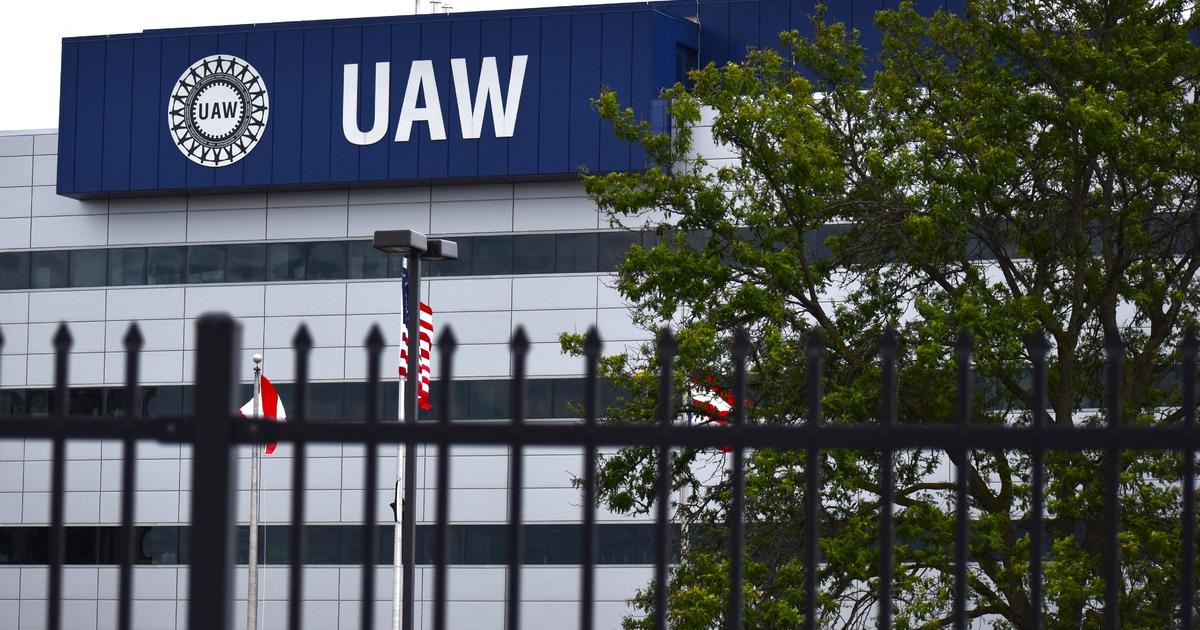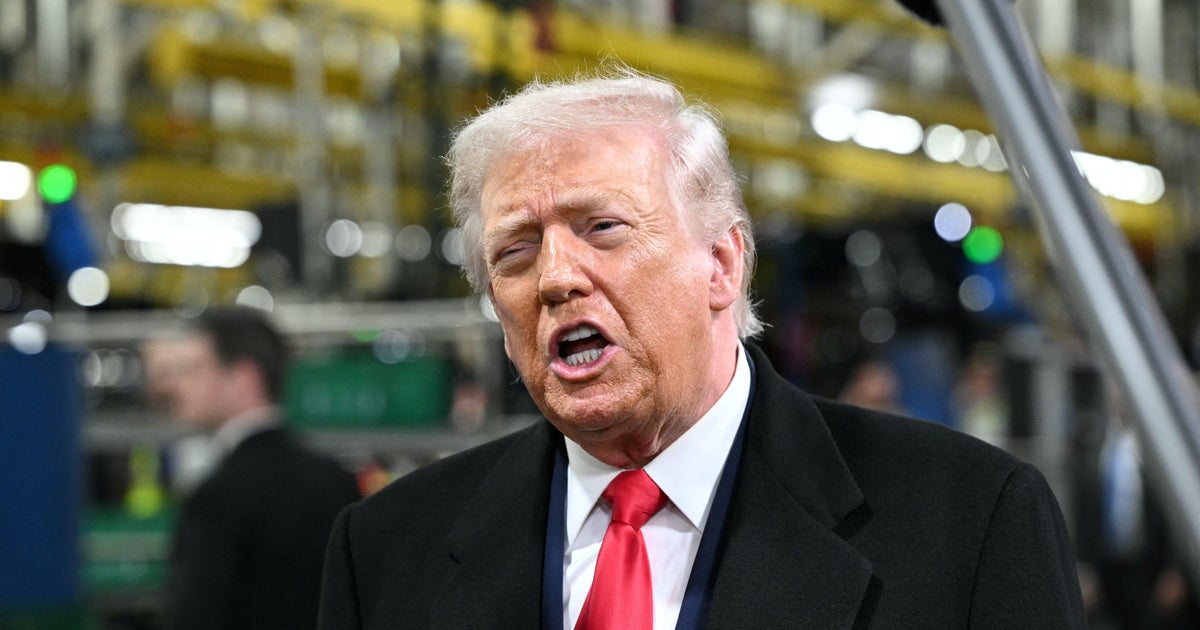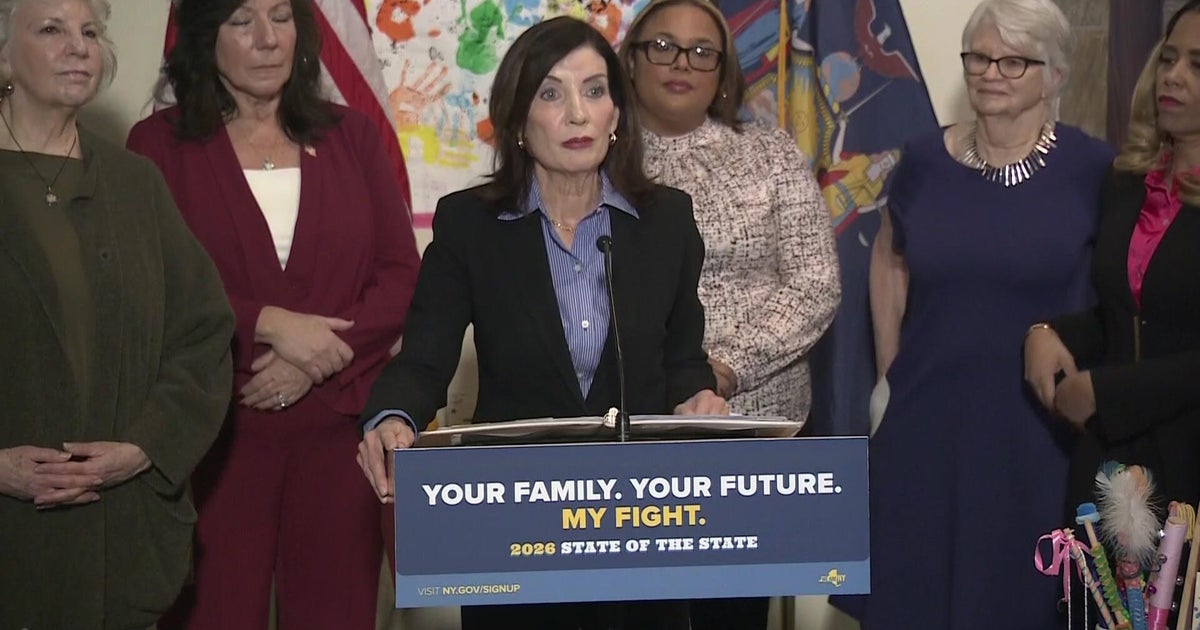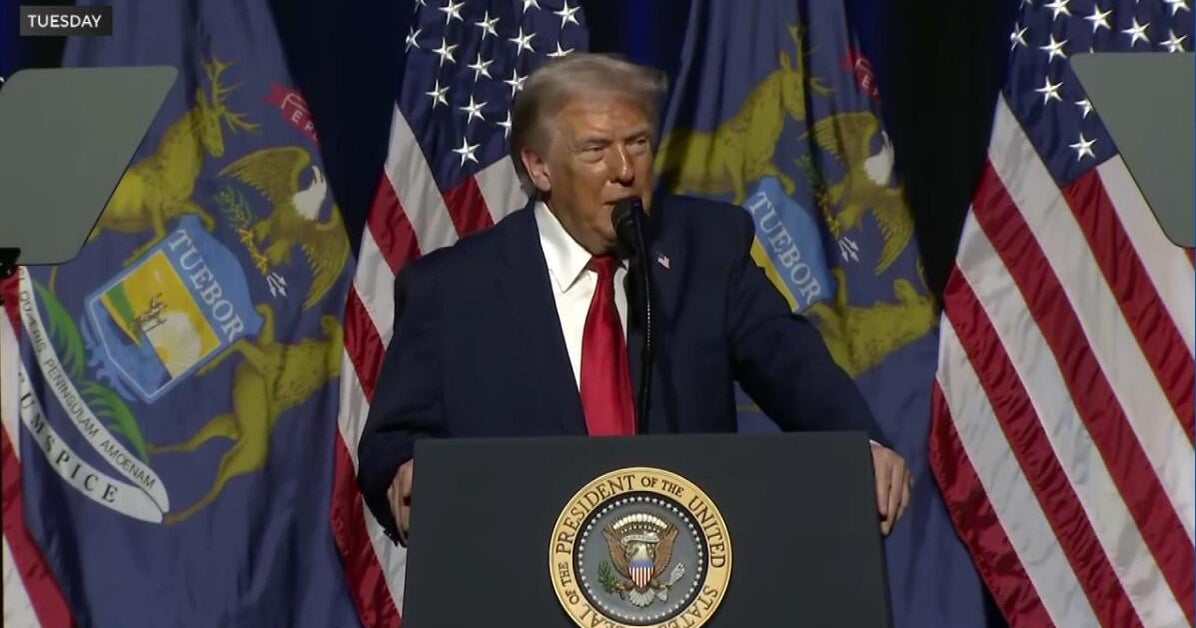Spicer: 'Evolving And Eroding Level Of Trust' Led Trump To Ask For Flynn's Resignation
WASHINGTON (CBSNewYork/AP) -- National security adviser Michael Flynn has resigned following reports he misled Vice President Mike Pence about contacts with a Russian diplomat, up-ending President Donald Trump's White House team less than a month after his inauguration.
In a resignation letter, Flynn said he gave Pence and others "incomplete information" about his calls with Russia's ambassador to the U.S. The vice president, apparently relying on information from Flynn, initially said the national security adviser had not discussed sanctions with the Russian envoy, though Flynn later conceded the issue may have come up.
In the letter, he also blamed "the fast pace of events" during the presidential transition for causing him to "inadvertently leave out key details of phone calls with the Russian ambassador prior to inauguration."
"If you're the president and the vice president, you can not have somebody working for you, advising you that you have to question their trust and credibility," CBS News Senior Nation Security Analyst Fran Townsend said.
Such conversations would breach diplomatic protocol and possibly violate the Logan Act, a law aimed at keeping private citizens from conducting U.S. diplomacy. The Justice Department also had warned the White House late last month that Flynn could be in a compromised position because of contradictions between his public depictions of the calls and what intelligence officials knew to be true based on routine recordings of communications with foreign officials who are in the U.S.
White House Press Secretary Sean Spicer said there was "exhaustive and extensive questioning" of Flynn on multiple occasions over his conversations with Russia's ambassador to the U.S., and the Justice Department informed the White House on Jan. 26 about Flynn's conversations during the transition.
Spicer said Tuesday that Flynn either mislead Vice President Mike Pence and others, or forgot "critical details" about his call with Russia's ambassador to the U.S., creating "a critical mass and an unsustainable situation."
In apparent response to Flynn's resignation, Trump tweeted Tuesday morning that the "real story" is "why are there so many illegal leaks coming out of Washington?"
Kellyanne Conway, a close aide to Trump, had said Monday that Flynn continued to have the "full confidence" of the president. On Tuesday, she said in televised interviews that Trump had supported Flynn out of loyalty but that the situation reached a "fever pitch" and had become "unsustainable."
"By night's end, Mike Flynn had decided it was best to resign. He knew he'd become a lightning rod, and he made that decision," Conway told NBC's "Today" show.
When asked why the White House didn't move sooner after being warned by the Justice Department that Flynn was at risk of blackmail, Conway was vague: "As time wore on, obviously the situation became unsustainable," she repeated.
She added: "We're moving on."
However, just hours after Conway's interview, the White House made it clear this was no voluntary resignation.
"The evolving and eroding level of trust as a result of this situation and a series of other questionable instances is what led the president to ask for General Flynn's resignation," Spicer said.
On Monday, speaker Paul Ryan said Trump made the "right decision'' to ask for the resignation of Michael Flynn, who is out as national security adviser.
The Wisconsin Republican told reporters on Tuesday that you cannot have the national security adviser misleading Vice President Pence and others in the administration.
Trump named retired Lt. Gen. Keith Kellogg as the acting national security adviser. Kellogg had previously been appointed the National Security Council chief of staff and advised Trump during the campaign. Trump is also considering former CIA Director David Petraeus and Vice Admiral Robert Harward, a U.S. Navy SEAL, for the post, according to a senior administration official.
A U.S. official told The Associated Press that Flynn was in frequent contact with Ambassador Sergey Kislyak on the day the Obama administration slapped sanctions on Russia for election-related hacking, as well as at other times during the transition.
An administration official and two people with knowledge of the situation confirmed the Justice Department warnings on condition of anonymity because they were not authorized to discuss the matter publicly. It was unclear when Trump and Pence learned about the Justice Department outreach.
The Washington Post was the first to report the communication between former acting attorney general Sally Yates, a holdover from the Obama administration, and the Trump White House. The Post also first reported last week that Flynn had indeed spoken about sanctions with the Russian ambassador.
Trump never voiced public support for Flynn after that initial report but continued to keep his national security adviser close.
The White House officials sent contradictory messages, meantime, about Flynn's job status. While Conway was remarking that Trump had "full confidence" in the retired general, White House press secretary Sean Spicer said the president was "evaluating the situation" and consulting with Pence about his conversations with the national security adviser.
Asked whether the president had been aware that Flynn might have planned to discuss sanctions with the Russian envoy, Spicer said, "No, absolutely not."
The Kremlin had confirmed that Flynn was in contact with Kislyak but denied that they talked about lifting sanctions. On Tuesday, Russian lawmakers mounted a fierce defense of Flynn.
Konstantin Kosachev, chairman of the foreign affairs committee at the upper chamber of the Russian parliament, said in a post on Facebook that firing a national security adviser for his contacts with Russia is "not just paranoia but something even worse." Kosachev also expressed frustration at the Trump administration:
"Either Trump hasn't found the necessary independence and he's been driven into a corner... or russophobia has permeated the new administration from top to bottom," he said.
Kosachev's counterpart at the lower chamber of the Russian parliament, Alexei Pushkov, tweeted shortly after the announcement that "it was not Flynn who was targeted but relations with Russia."
Despite Flynn's resignation, there have been calls from both sides of the aisle for a full investigation into the matter.
California Rep. Adam Schiff, the top Democrat on the House Intelligence Committee, said Flynn's resignation "does not end questions over his contacts with the Russians." He said the White House has yet to be forthcoming about whether Flynn was acting at the behest of the president or others.
"What did the president know and when did he know it?" Maryland Rep. Elijah Cummings wanted to know.
On another front, photos emerged on social media of President Trump and Japanese Prime Minister Shinzo Abe publicly reading information by camera light, surrounded by club members at the Mar-A-Lago. This happened shortly after North Korea fired a test ballistic missile.
In the photo, Trump's chief strategist Steve Bannon and Flynn can be seen hovering just above him.
Some thought they were discussing sensitive national security matters in plain view, but the White House said in a statement that's not what happened -- insisting that Trump was briefed on the North Korea situation in a classified setting.
Ryan also defended Trump's conferring with Japanese Prime Minister Shinzo Abe on decisions with national security implications at the Mar-a-Lago resort.
Ryan said it was his understanding that no classified information was discussed.
North Korea has been a source of frustration for the United States for over a decade.
"The Bush Administration tried, the Obama Administration tried -- the meaningless statements of condemnation out of the U.N .yesterday -- that doesn't do much, Townsend said.
Townsend says that it's China that's got the most leverage with North Korea.
"They're the oxygen that allows North Korea to operate, and you have to get them to use that leverage to apply real pressure on the North Koreans to dial back," Townsend said.
But getting that to happen may present a challenge to the Trump Administration because, according to Townsend, the White House doesn't have leverage with China themselves at this point.
Also Tuesday, New Jersey Gov. Chris Christie and his wife traveled to the White House for lunch with the president.
The White House said Trump and Christie spoke about combating drug use. However, sources tell CBS News the president and governor had a serious talk about how the White House is and is not working. Sources said there may be a role for Christie in the administration going forward, something that was generally explored during their lunch.
Meanwhile, the Office of Government Ethics suggested disciplinary action be taken against Kellyanne Conway for endorsing Ivanka Trump's product.
On Wednesday, Trump will meet with Israeli Prime Minister Benjamin Netanyahu, who arrived in Washington on Monday night.
The White House says many critical issues will be on the table, including fighting ISIS and ending the Israeli-Palestinian conflict.
(TM and © Copyright 2017 CBS Radio Inc. and its relevant subsidiaries. CBS RADIO and EYE Logo TM and Copyright 2017 CBS Broadcasting Inc. Used under license. All Rights Reserved. This material may not be published, broadcast, rewritten, or redistributed. The Associated Press contributed to this report.)
